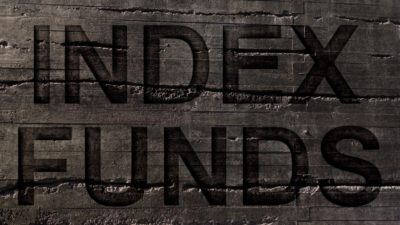As I write these words, the FTSE 100 is down 77 points on the day to 6,097 points, down 13% since last May’s high, and it looks like it greatly prefers the 6,000 level to anything close to 7,000.
The gloomsters are out in force again, and opinion sources are awash with predictions of another great slump. Are they right? Well, the start to the year suggested they might be, as the UK’s top index crashed to 5,639.9 points on 20 January, before recovering a little and then plummeting even further to 5,499.5 on 11 February — a level not seen since 2012.
The experts
Some bearish pundits are pointing to ace investor Warren Buffett and his Berkshire Hathaway investment company’s holdings, and claiming that his reducing some of his exposure to stocks that rely on consumer spending over the past few years is a sign that the sage is worried about a new economic crunch around the corner. Yet at 31 December 2015, consumer staples still accounted for the biggest chunk of Berkshire’s holdings at 37%.
Or is Mr Buffett fearing a second banking crisis? Well, at 35%, financials make up Berkshire’s second biggest investment sector, with Wells Fargo alone claiming nearly 20% of the portfolio’s $131.9bn value — I see no panic there. Most importantly, Berkshire is fully invested in shares — Mr Buffett is not sitting on cash waiting for any big crunch.
And what about ace UK investor Neil Woodford? He’s not been selling, but instead he sees plenty of great buying opportunities — he’s been following the old Buffett maxim of buying when everyone else is fearful.
Cheap oil isn’t so bad
And then we have some pessimists who reckon the low price of oil and the Chinese slowdown are signs of an impending global economic catastrophe, and that shares could have as much as 75% or even 80% knocked off their value. But, really!
Oil is cheap because producing nations are pumping out an oversupply of the stuff, not because there’s any serious decline in demand — in fact, demand is expected to continue to climb in the medium to longer term. And in their attempts to kill off oil shale, many producers have ended up having to sell oil at less than it costs them to produce it. So the rest of us are getting oil nice and cheap — what’s so bad about that?
China has some serious structural problems, but the slowdown is only taking growth down to levels that the rest of us can but dream about — is growth of around 7% per year really so bad?
I see no crash
We’ve seen bigger crashes than those being predicted in recent memory. The great dot com crash at the turn of the century led to high flyers losing 90% and more of their value. But those were low-worth and profitless companies in the first place, boosted to ludicrous valuations by those pursuing the “greater fool” approach of hoping to buy one day and sell to some other sucker the next.
That’s certainly not the case with Unilever steadily growing its earnings and able to pay out well-covered dividends yielding better than 3%, nor with Lloyds Banking Group with a predicted dividend of more than 6% from shares on a P/E of less than nine. Nor a fast-improving AstraZeneca on a P/E of 14 with 5% dividend yields. Nor even with BP, whose 8% dividends might not be covered, but should be in another year or two.
The market is cheap
No, we’re not looking at a market of shares that are horribly overvalued at all. Instead what we have is a FTSE that’s close to its long-term average P/E and paying average dividends that are above the long-term average, and that looks very attractive to me.
There’ll be uncertainty for a while longer for sure, and I wouldn’t be at all surprised to see the FTSE wallowing in the low 6,000 range for perhaps even another year or more before growing again. But a major crash this year? Not a chance!







